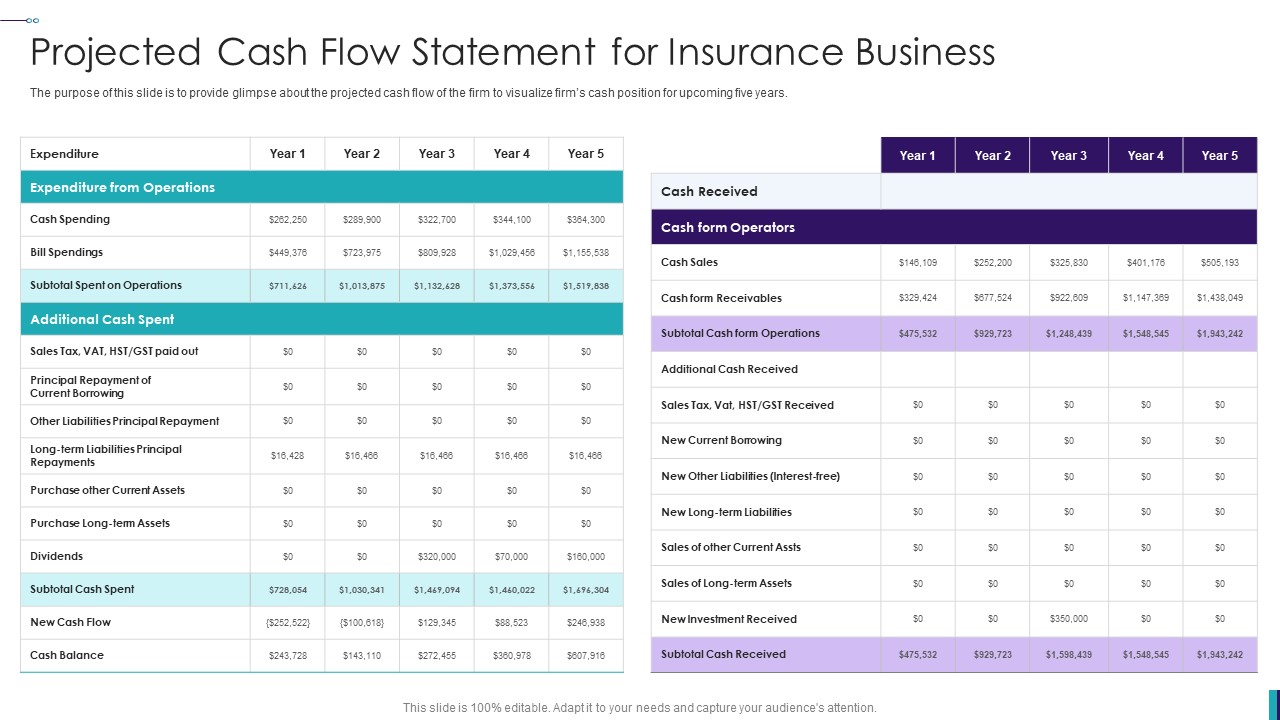

Finance
What Does Dilution Mean In Stocks
Modified: February 21, 2024
Discover the meaning of dilution in stocks and its significance in finance. Learn how dilution can affect stock prices and shareholder ownership.
(Many of the links in this article redirect to a specific reviewed product. Your purchase of these products through affiliate links helps to generate commission for LiveWell, at no extra cost. Learn more)
Table of Contents
Introduction
Welcome to the world of stocks, where investing and trading can sometimes feel like navigating through a complex maze. One concept that often perplexes investors is dilution. When it comes to stocks, dilution refers to the reduction in a shareholder’s ownership percentage and earnings per share due to the issuance of additional shares by a company. It is a critical concept to understand, as it can impact the value of your investments and your decision-making process.
Dilution occurs when a company increases its outstanding shares, resulting in a decrease in the ownership percentage of existing shareholders. This increase in shares can happen through various means, such as issuing new shares to raise capital, employee stock options, convertible debt, or stock splits. While dilution is a common practice employed by companies, it can have significant implications for shareholders.
In this article, we will delve into the concept of dilution in stocks, explore its types, and discuss its impact on stockholders. We will also look at real-world examples and discuss measures companies can take to mitigate dilution. By the end, you will have a comprehensive understanding of dilution and be better equipped to navigate the intricacies of the stock market.
Definition of Dilution
Before we dive deeper into the world of dilution in stocks, let’s start with a clear definition. Dilution refers to the reduction in the ownership percentage and earnings per share of existing shareholders when a company issues additional shares.
When a company decides to issue more shares, it effectively increases its outstanding share count. This increase in shares dilutes the ownership stake of existing shareholders, as their percentage ownership in the company decreases. For example, if you own 100 shares in a company with a total of 1,000 outstanding shares, you have a 10% ownership stake. However, if the company issues an additional 500 shares, your ownership stake would be diluted to 5%.
Dilution affects not only the ownership percentage but also the earnings per share (EPS). EPS is a financial metric that measures the profitability of a company on a per-share basis. When a company issues more shares, the total earnings are divided among a larger number of shares, resulting in a decrease in the EPS. This dilution of earnings per share can impact the valuation of the stock and the overall perception of the company by shareholders and potential investors.
To understand dilution further, it’s important to distinguish between primary dilution and secondary dilution. Primary dilution occurs when a company issues new shares to raise capital. This can be through an initial public offering (IPO), a follow-on public offering, or a private placement. Secondary dilution, on the other hand, occurs when existing shareholders sell their shares in the market, increasing the outstanding share count and diluting the ownership stakes of remaining shareholders.
It’s worth noting that while dilution affects ownership percentage and EPS, it does not necessarily mean a decline in the overall value of the company. Whether dilution is beneficial or detrimental to existing shareholders depends on how the company utilizes the additional capital raised and generates future profits.
Now that we have a clear understanding of what dilution means let’s explore the different types of dilution in the next section.
Types of Dilution
There are various types of dilution that can occur in the stock market. Understanding these different types is crucial in assessing the impact on shareholders and evaluating investment decisions. Let’s explore some of the common types of dilution:
- Equity Dilution: Equity dilution occurs when a company issues additional shares, either through a public offering or private placement, which results in a decrease in the ownership percentage of existing shareholders. This type of dilution is the most common and directly affects the equity value of the company.
- Earnings Dilution: Earnings dilution is a decrease in the earnings per share (EPS) due to the issuance of additional shares. When a company issues more shares, the earnings are spread across a larger number of shares, resulting in a lower EPS. Earnings dilution can have a negative impact on the valuation of the stock and the perception of the company’s profitability.
- Stock Option Dilution: Stock option dilution occurs when a company grants stock options to its employees as part of their compensation packages. These options give employees the right to purchase company shares at a predetermined price in the future. When employees exercise their stock options by purchasing shares, it increases the outstanding share count and dilutes the ownership stakes of existing shareholders.
- Convertible Securities Dilution: Convertible securities, such as convertible bonds or preferred stock, have the option to be converted into common shares of the issuing company. When these securities are converted into common shares, it increases the outstanding share count and dilutes the ownership percentages of existing shareholders.
- Anti-Dilution Protection: Anti-dilution protection is a mechanism aimed at protecting existing shareholders from dilution. It can be in the form of anti-dilution provisions, such as weighted average or full-ratchet, which adjust the conversion price of convertible securities in the event of future share issuances at a lower price.
It’s important to note that dilution is not always negative. In some cases, dilution can be a strategic move by a company to raise capital for expansion, acquisitions, or research and development. The key is to assess the purpose and potential benefits of the dilution and how it aligns with the company’s long-term growth prospects.
Now that we have explored the different types of dilution, let’s dive into how dilution specifically impacts stockholders in the next section.
Dilution in Stocks
Dilution in stocks refers to the reduction in the ownership percentage and earnings per share of existing shareholders when a company issues additional shares. It is a common practice employed by companies to raise capital or compensate employees. Understanding how dilution works in the context of stocks is crucial for investors to evaluate the impact on their investments.
When a company decides to issue more shares, it increases the outstanding share count, which dilutes the ownership stakes of existing shareholders. For example, if you own 100 shares in a company with a total of 1,000 outstanding shares, you have a 10% ownership stake. However, if the company issues an additional 500 shares, your ownership stake would be diluted to 5%. This means that your proportionate ownership in the company has decreased.
Dilution in stocks also affects the earnings per share (EPS). When a company issues more shares, the total earnings are divided among a larger number of shares, resulting in a decrease in the EPS. A lower EPS may impact the valuation of the stock, as it indicates a reduced profitability on a per-share basis.
It’s important to note that dilution does not always have negative implications. Some dilutions, such as those aimed at raising capital for expansion or acquiring new assets, can be beneficial for the long-term growth of the company. However, investors need to carefully evaluate the purpose and potential impact of the dilution before making investment decisions.
In addition to equity dilution, there are other forms of dilution common in the stock market. Stock option dilution occurs when a company grants stock options to its employees, which, when exercised, increase the outstanding share count and dilute the ownership stakes of existing shareholders. Convertible securities dilution happens when convertible securities, such as convertible bonds or preferred stock, are converted into common shares, thereby increasing the share count and diluting existing shareholders.
Overall, understanding dilution in stocks is essential for investors to assess the impact on ownership percentage, earnings per share, and the overall value of their investments. Dilution can be a strategic move by companies to raise capital or provide employee incentives, but investors should carefully analyze the purpose and potential benefits of the dilution to make informed investment decisions.
Now let’s explore the reasons behind dilution in the stock market.
Reasons for Dilution
There are several reasons why companies may choose to dilute their stocks by issuing additional shares. Understanding the motivations behind dilution is important for investors to gain insight into a company’s financial strategy. Let’s explore some common reasons for dilution:
- Raising Capital: One of the main reasons for dilution is to raise capital. Companies may issue additional shares to generate funds for various purposes, such as expanding their operations, financing new projects, or paying off debt. By selling more shares, companies can access the capital they need to support their growth strategies.
- Employee Stock Compensation: Many companies offer employee stock compensation programs as a part of their employee benefits package. This can include stock options or restricted stock units (RSUs) granted to employees. When these stock options or RSUs are exercised or vested, it increases the outstanding share count and dilutes the ownership stakes of existing shareholders.
- Acquisitions and Mergers: Dilution can also occur when a company acquires or merges with another company. In such cases, the acquiring company may issue additional shares as part of the acquisition deal. This issuance of shares to the shareholders of the acquired company dilutes the ownership stakes of existing shareholders of the acquiring company.
- Debt Conversion: In some situations, companies may convert debt into equity to strengthen their balance sheets. This debt-to-equity conversion can lead to dilution for existing shareholders, as the debt holders become new shareholders by receiving additional shares in exchange for their debt holdings.
- Stock Splits: While not directly related to raising capital, stock splits can result in dilution. A stock split is a corporate action where a company increases the number of outstanding shares but reduces the price of each share proportionately. Although the ownership percentage remains the same, the increased share count can lead to dilution in terms of earnings per share.
It’s important to note that not all dilution is negative. Dilution can serve strategic purposes and be beneficial for a company’s long-term growth. However, it’s crucial for investors to carefully assess the reasons for dilution and consider the potential impact on their ownership stake and the overall value of their investments.
Now that we have explored the reasons behind dilution, let’s examine the impact of dilution on stockholders.
Impact of Dilution on Stockholders
Dilution can have both direct and indirect impacts on stockholders. Understanding how dilution affects stockholders is crucial for investors to evaluate the potential implications on their ownership stakes and investments. Let’s explore the impact of dilution on stockholders:
Ownership Percentage: When a company issues additional shares, it increases the outstanding share count, which dilutes the ownership percentages of existing stockholders. As a result, the proportionate ownership in the company decreases. This can be concerning for stockholders who prefer to maintain a higher ownership stake and have a stronger influence on the company’s decision-making process.
Earnings per Share (EPS): Dilution also impacts the earnings per share (EPS) of a company. When more shares are issued, the earnings are divided among a larger number of shares, resulting in a lower EPS. A lower EPS can negatively impact the valuation of the stock as it indicates reduced profitability on a per-share basis. Stockholders may experience a decline in the value of their investment if the market perceives the lower EPS unfavorably.
Dividend Payments: Dilution can also affect dividend payments. When a company issues more shares, it increases the number of shareholders who are entitled to receive dividends. As a result, the dividend payments may be spread across a larger shareholder base, potentially reducing the amount of dividends per share for existing stockholders. This can impact the income generated from the investment for dividend-oriented investors.
Market Perception: Dilution can influence the market perception of a company. If investors perceive that excessive dilution is occurring, it may signal weakness or a need for additional financing. This can impact the market sentiment and potentially lead to a decline in the stock price. On the other hand, if investors view the dilution as a strategic move to raise capital for growth opportunities, it can be perceived positively and contribute to the long-term value of the stock.
Future Fundraising: Dilution can have implications for future fundraising activities of a company. If a company has already diluted its shares significantly, potential investors or lenders may perceive it as a red flag, questioning the company’s ability to generate sufficient returns or repay debt. This may lead to challenges in accessing additional capital in the future or securing favorable financing terms.
It’s important for stockholders to carefully assess the impact of dilution and evaluate the overall financial health, growth prospects, and strategic plans of the company. Dilution is not always negative and can sometimes be a necessary step for companies to fuel growth or strengthen their financial position. By considering the reasons for dilution and the potential benefits, investors can make more informed decisions regarding their investments.
Now, let’s explore real-world examples of dilution in stocks.
Examples of Dilution in Stocks
Dilution is a common occurrence in the stock market, and there have been numerous examples of dilution throughout history. Let’s examine some notable examples to gain a better understanding of how dilution impacts stockholders:
Example 1: Tesla Inc.
In 2020, Tesla announced a 5-for-1 stock split. This means that for every Tesla share held, shareholders received an additional four shares. While the stock split did not impact the ownership percentage, it resulted in a lower share price and increased the outstanding share count, potentially diluting the earnings per share.
Example 2: Facebook Inc.
In 2012, Facebook went public through an initial public offering (IPO). The IPO involved the issuance of additional shares to the public, leading to dilution for existing shareholders. However, the IPO also allowed Facebook to raise capital and significantly expand its investor base, contributing to its growth and success in the following years.
Example 3: Biotech Startups
Biotech startups often experience dilution as they progress through different funding rounds. These companies rely on raising capital to fund expensive research and development activities. Each funding round usually involves the issuance of additional shares to investors, resulting in dilution for existing shareholders. However, the capital raised enables these companies to advance their drug development programs and potentially generate significant value in the future.
Example 4: Employee Stock Options
Many technology companies, such as Google and Microsoft, have granted generous employee stock options as part of their compensation packages. When employees exercise these stock options, it increases the outstanding share count and dilutes the ownership stakes of existing shareholders. This form of dilution is often used to incentivize and retain talented employees.
Example 5: Rights Offering
In a rights offering, a company allows existing shareholders to purchase additional shares at a discounted price. While this can be an opportunity for shareholders to increase their ownership stake, it can also result in dilution for those who do not participate in the offering. The discounted price may be lower than the current market price, leading to potential dilution of the stock if the new shares are sold in the market later on.
These examples highlight the various scenarios where dilution can occur in the stock market. It is essential for investors to carefully evaluate the reasons behind dilution and consider the potential impact on their ownership stakes and investments in these situations. Dilution is a common mechanism used by companies to raise capital or compensate employees, but its effects on stockholders can vary depending on the specific circumstances.
Now, let’s explore measures companies can take to reduce dilution.
Measures to Reduce Dilution
While dilution is a common practice in the stock market, companies can take certain measures to minimize the impact of dilution on existing shareholders. These measures aim to strike a balance between raising capital and preserving the ownership stakes of current stockholders. Let’s explore some of the strategies companies can employ to reduce dilution:
- Efficient Capital Allocation: By efficiently allocating capital, companies can reduce the need for frequent dilution. This involves making strategic decisions regarding investments, acquisitions, and expansion plans to ensure that the available capital is utilized effectively. By maximizing returns on existing investments, companies can potentially minimize the need for additional funding through dilution.
- Stock Buybacks: Companies may choose to repurchase their own shares on the open market through stock buyback programs. This reduces the number of outstanding shares and increases the proportionate ownership for existing shareholders. Stock buybacks can be an effective way to offset dilution, especially if the shares are repurchased at a lower price than their intrinsic value.
- Optimizing Equity-Based Compensation: Companies can revise their equity-based compensation plans to ensure they strike a balance between motivating employees and minimizing dilution. This can involve setting stringent vesting periods for stock options or RSUs, tying compensation to performance metrics, or exploring alternative forms of employee incentives that may have lesser dilutive effects.
- Convertible Debt Management: If a company has issued convertible debt securities, they can consider proactive debt management strategies. For example, companies can negotiate conversion terms that are more favorable to existing shareholders in order to minimize dilution if and when the conversion occurs. Additionally, companies can also explore refinancing options to reduce the overall debt burden and potential dilutive impact.
- Strategic Partnerships and Investments: Companies can seek strategic partnerships or secure investments from external sources to raise capital without resorting to significant dilution. By attracting strategic investors or securing funding from venture capital firms or private equity, companies can tap into additional capital while minimizing dilution for existing shareholders.
It’s important to note that while these measures can help reduce dilution, they may not completely eliminate it. Dilution is often a necessary component of raising capital and enabling growth. Companies need to strike a balance between raising funds to support their strategic initiatives and preserving the interests of existing shareholders.
As an investor, it’s crucial to monitor and evaluate how companies manage dilution and their overall financial strategy. Understanding the rationale behind dilution and the steps taken to mitigate its impact can provide valuable insights when assessing investment opportunities.
Now that we have explored measures to reduce dilution, let’s conclude the article.
Conclusion
Dilution is a fundamental concept in the world of stocks that can have significant implications for shareholders. It refers to the reduction in the ownership percentage and earnings per share of existing shareholders when a company issues additional shares. While dilution is a common practice employed by companies for various reasons, it is essential for investors to understand its impact and evaluate investment decisions accordingly.
Throughout this article, we have explored the definition of dilution, its types, and the reasons behind it. We have also discussed the impact of dilution on stockholders, including the decrease in ownership percentage, potential decline in earnings per share, and the influence on market perception. Furthermore, we have examined real-world examples of dilution and outlined measures companies can take to reduce dilution and preserve the interests of existing shareholders.
It’s important to note that dilution is not always negative. Sometimes, it is a strategic move by companies to raise capital for growth opportunities, acquisitions, or debt repayment. Dilution can be viewed as a necessary trade-off for the long-term development and success of a company. As investors, it becomes crucial to thoroughly analyze the reasons for dilution and consider its potential benefits in the context of the company’s overall financial strategy.
In conclusion, dilution is a dynamic and complex concept that investors should thoroughly understand and evaluate. By gaining knowledge of the factors contributing to dilution, investors can make more informed decisions regarding their investments and align them with their individual goals and risk appetite.
Remember, the stock market is constantly evolving, and dilution is just one aspect to consider while navigating the complex world of investing. Staying updated on market trends, conducting thorough research, and seeking professional advice can all contribute to making sound investment decisions.
Investing in stocks always comes with risks, and thorough analysis, diversification, and a long-term perspective are key components of successful investing. By understanding the concept of dilution and its impact, investors can navigate the stock market with more confidence and enhance their overall investment strategy.














